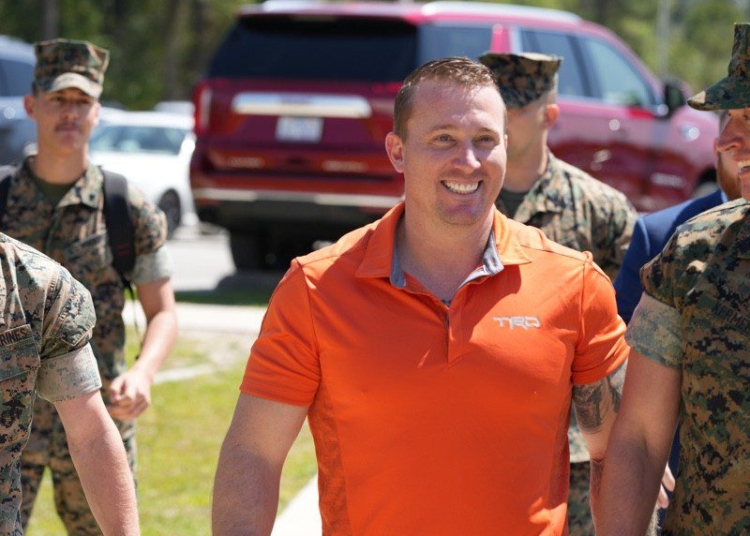In today’s complex world, military leadership and mental resilience are crucial for success and well-being in the armed forces. Dakota Meyer, a former Marine Corps sergeant and Medal of Honor recipient, exemplifies these qualities. Meyer’s experiences highlight the importance of leadership in military operations. Effective military leaders possess attributes such as clear communication, a strong sense of duty, adaptability, and leading by example. Mental resilience, or psychological toughness, is also essential for overcoming adversity. Meyer’s unwavering determination and focus during the Battle of Ganjgal demonstrate the power of mental resilience. His journey teaches valuable lessons in leadership and resilience, emphasizing the need for leading by example, effective communication, cultivating mental resilience, prioritizing the well-being of team members, and continuous learning. By emulating Meyer and cultivating these qualities, military personnel and leaders can enhance their effectiveness and success in challenging situations.
Military Leadership and Mental Resilience: Lessons from Dakota Meyer
Introduction
In today’s complex and challenging world, military leadership and mental resilience play vital roles in ensuring the success and well-being of individuals serving in the armed forces. One individual who exemplifies these qualities is Dakota Meyer, a former Marine Corps sergeant who received the Medal of Honor for his actions during the Battle of Ganjgal in Afghanistan in 2009. Meyer’s experiences and leadership lessons provide valuable insights into the importance of mental resilience and effective leadership in military environments.
Military Leadership
Meyer’s story highlights the significance of leadership qualities in military operations. As a non-commissioned officer, he demonstrated exemplary leadership by taking charge of the situation at Ganjgal, organizing a rescue mission, and repeatedly exposing himself to enemy fire to save his comrades. His ability to make decisive and courageous decisions under extreme pressure showcases the importance of strong leadership in the military.
Effective military leaders possess several key attributes. They must be able to communicate clearly and inspire others with their words and actions. Leaders like Meyer have a strong sense of duty and are willing to put the well-being of their subordinates above their own. They must also be adaptable and quick-thinking, capable of making crucial decisions in rapidly changing and often dangerous situations.
Moreover, military leaders must lead by example. Meyer’s bravery on the battlefield motivated his fellow Marines and instilled confidence in their ability to achieve success. Leaders who lead from the front cultivate trust and respect among their team members, fostering a sense of unity and dedication that contributes to overall mission success.
Mental Resilience
Military personnel face numerous physical and mental challenges throughout their service. Mental resilience, also known as psychological toughness, is a crucial attribute that allows individuals to cope with and overcome adversity. Meyer’s experiences highlight the power of mental resilience in the face of trauma and stress.
During the Battle of Ganjgal, Meyer encountered overwhelming odds and witnessed the loss of several comrades. Despite the horrific circumstances, he remained steadfast and determined, refusing to give up. His mental resilience allowed him to persevere when others may have faltered, ultimately leading to the successful rescue of numerous trapped soldiers.
Mental resilience can be cultivated and strengthened through training and personal development. It involves the ability to remain focused, maintain a positive mindset, and adapt to challenging circumstances. Military leaders like Meyer recognize the importance of mental resilience in themselves and their teams, emphasizing the need to provide resources and support for building this crucial characteristic.
Lessons Learned
Meyer’s journey offers several valuable lessons for military leadership and mental resilience:
- Lead by example: Leaders must demonstrate courage, selflessness, and dedication, setting the standard for their team members to follow.
- Communicate effectively: Clear and concise communication is vital in building trust, unity, and providing direction amidst chaos.
- Cultivate mental resilience: Developing psychological toughness through training and personal growth enables individuals to overcome adversity and remain focused in challenging situations.
- Take care of your team: Prioritizing the well-being and development of subordinates is crucial for fostering a cohesive and successful unit.
- Continual learning: Leaders must continuously seek knowledge and seek to improve their skills to adapt to evolving challenges in the military environment.
Conclusion
Military leadership and mental resilience go hand in hand, and Dakota Meyer’s experiences provide valuable lessons in both areas. His exemplary leadership and unwavering mental resilience during the Battle of Ganjgal demonstrate the importance of these qualities in military environments. By emulating Meyer’s leadership style and cultivating mental resilience, both military personnel and leaders can enhance their effectiveness, adaptability, and overall success in the face of adversity.












